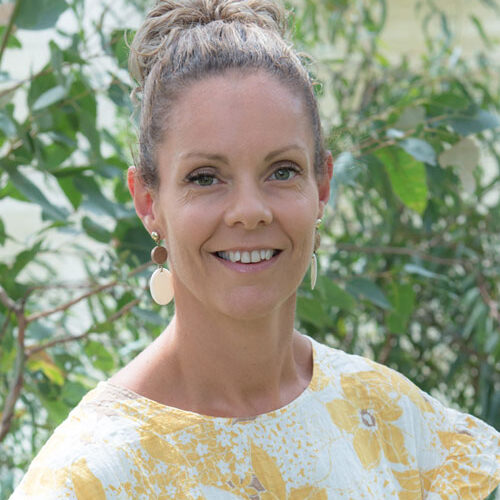Choosing or Changing Schools After Separation

Choosing which school your child will attend is a big decision for every parent, and if you have separated from your partner, it gets even more complex. After a separation, there are lots of things to consider from custody arrangements to financial agreements, and on top of all this you will need to decide on their school and whether they’ll stay where they are, or whether you should change schools to better suit your current lifestyle.
You might already have an education plan for your child from before you separated, but if you don’t, you could be wondering who makes decisions about education. How do you go about choosing or changing schools? And what happens if your ex-partner disagrees with your decision?
Who makes the decisions about education?
Knowing who makes the decisions for your child after separation can be challenging, but knowing your rights and responsibilities is a critical part of the post-separation process. Generally, any decision that needs to be made can fall into two categories: day-to-day decisions and long-term decisions.
Day-to-day decisions
These are the small decisions you make every day to meet your child’s basic needs. Normally, the primary parent makes the day-to-day decisions, which will include things like:
- What your child eats
- What they wear
- What time do they go to bed
- How they get to school
Day-to-day decisions are things that need to be decided on, often quickly, that don’t have a long-term impact on your child.
Long-term decisions
Long-term decisions are decisions that are going to impact your child’s life now and into the future. Generally, both parents will be involved in making these types of decisions. This is called shared parental responsibility.
Shared parental responsibility is different from shared care. It’s the responsibility bestowed on a parent at the time of a child’s birth, and regardless of how custody is arranged, it remains in place unless the Courts rule otherwise.
Shared parental responsibility gives both parents equal rights to make decisions for their children and must be made together, by agreement, such as:
- What schools they attend
- Their religion or cultural upbringing
- Health and medical decisions
- Their name
- Where they live
Choosing your child’s school
Choosing your child’s school is a long-term decision, so both you and your partner will need to agree before you enrol them. This might take some negotiation and compromise from both of you.
Your first step is to get a good grasp on the schools in your local area, paying attention to:
- Where they are located near both parents’ homes
- Whether you meet the criteria to enrol your child there
- Whether they have a school uniform
- What extra-curricular experiences do they provide
- What the compulsory fees and any voluntary donations are per year
- Whether any specialist programs would benefit your child
Once you have gathered all the information you can, you will need to have a conversation with your ex-partner. It may take several conversations to reach an agreement on a particular school. During these conversations, it’s a good idea to consider:
- Whether your child currently has friends or siblings attending any of the schools
- Whether your child has a preference for a specific school
- If there are any cultural or religious reasons for your child to attend a particular school
- Whether your child has any special needs and which schools can provide this care
- Depending on your custody arrangement, which of the schools is close enough for your child to be dropped off and picked up from both homes?
- Are the fees affordable for both families?
Once you have decided on a school together, you can enrol your child without a written agreement. However, it’s a good idea to fill in the enrolment forms together or get your ex-partner to sign them before you take them to the school.
Changing your child’s school
Since life isn’t always predictable, you might find yourself in the position of needing to change your child’s school. Before you consider changing your child’s school, you need to consider:
- Whether moving them is in their best interests
- Whether there is a significant benefit in moving schools
- Whether they have friends or family in the new school
- Whether the school can meet any of their special needs
- Whether your child wants to change school
- How your child feels about the school you have chosen
Changing schools is a decision that both you and your ex-partner need to agree on. Failure to get your ex-partner’s consent for any educational change could cost a lot of time and money in the long run, so it’s best to have the conversation before you buy a new school uniform.
What if your ex-partner doesn’t agree?
Choosing or changing schools is a tough decision and can lead to friction. When your ex-partner doesn’t agree with your choice, it can be tempting to just enrol your child and hope for the best. This is not recommended.
If your ex-partner doesn’t agree with the decision you made, they can start legal proceedings to have the child moved back to the previous school. As well as being stressful for the parents, this isn’t the ideal start to your child’s academic career.
If you and your ex-partner are having trouble agreeing on which school to enrol your child in or can’t reach an agreement on your child changing schools, you have options. Family lawyers are experts in helping families negotiate through a conflict so they can reach an agreement that works for everyone, especially the child.
If negotiation doesn’t work, your next step is to enter into mediation with your ex-partner. A specialist facilitator will guide discussions to assist in reaching a mutually agreeable outcome. If this fails, then the Courts are your last option.
Typically, you need to have been through mediation before you seek the assistance of the Courts, and you need to be aware that the Courts reserve the right to make a final decision on the school your child will attend.
When making a final decision, the Courts will look at factors such as:
- The school’s location
- Who the primary carer is
- Whether any siblings attend a particular school
- If any special needs need to be catered for
Negotiation, mediation or going through the Courts is a time-consuming process, so if you are choosing a school or considering changing schools, it’s best to have these conversations as early as possible so your child’s education isn’t delayed.
Having trouble agreeing on a school?
Here at Joliman Lawyers, we understand that making decisions about your child’s education can become complex and stressful. Our specialist team provides family coaching, parenting coordination coupled with mediation (if required) and family dispute resolution services to assist families to reach an agreement that works for everyone. Get in touch today to find out more about how we can help you get through the challenging times.
















